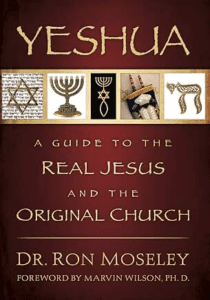The Hebrew Roots Movement – What it is and What it isn’t
Many Christians are getting back to their roots. But not in the way you think. Judaism is Biblically at the root of Christianity (Heb. 11:1-24), yet only some Christians are familiar with Jewish culture. Understanding or even practicing Jewish feasts and festivals brings rich meaning to the Christian faith. Most Christians believe in the authority of the Old Testament but reject Jewish culture because they either don’t understand it or don’t want to compromise their identity as those who recognize the Messiah versus the Jews who don’t. Because of this, a vast divide has formed between the two groups. As Christians, we attempt to emulate Jesus – except for the Jewish parts. Was Jesus celebrating Passover (Matt. 26:17-30), attending a synagogue (Luke 4:16), and other Jewish behaviors because he just happened to be Jewish, or does that have something to do with our faith as Christians? Over the years, some Christians have realized that the two faiths weren’t meant to diverge so drastically. They take Jesus literally when he says he fulfilled the Torah (or Law – Matthew 5:17) but didn’t abolish it. So, what does that look like in a modern Christian home? In short, it’s different for everyone.
It’s not Messianic Judaism
The Hebrew Roots Movement isn’t an organized religion but a path for individuals to grow and explore their faith. Most of its “members” are Christians who recognize their need for Jesus as their savior from their sins but desire to enrich their faith by incorporating biblical Jewish customs. Although these Gentile Christians may worship alongside Messianic Jews in some cases, the Hebrew Roots Movement differs from Messianic Judaism in that its constituents are not Jewish and they vary in the amount of Jewish traditions they observe. When a person of Jewish heritage recognizes Jesus as their Messiah, they are referred to as Messianic Jews. Gentiles are non-Jewish and stay non-Jews even when they embrace Jewish customs.

It’s not one doctrine
The primary source of doctrine in the Hebrew Roots Movement is simply the Bible itself – both the Old and New Testaments. Some in the Movement incorporate rabbinical teachings, and some do not. Some follow Kosher dietary laws, honor the New Moon Festivals, and keep their heads covered, while others do not. Some follow all Christian traditions but also incorporate the three annual festivals commanded in Deuteronomy 16:16. It is practiced differently in every Hebraic family I know, but they all have one thing in common: They seek to mature their faith and pass it on to others by illuminating the Gospel and the God of the Bible through the practice of Jewish customs.
It’s not legalism
“Legalism” is the main argument I hear from Christians against the Hebrew Roots Movement. Its Christian critics fear that embracing the commands of the Torah conflicts with the doctrine of salvation by grace. While “Hebrew Roots” is presented in many ways, I have yet to meet a constituent who believes that salvation occurs from keeping the Torah. They fully embrace salvation through Jesus as the sacrifice worthy of payment for our sins. Since we cannot earn our salvation because of our sin, we embrace Jesus, who kept the Torah to the letter, as our only way to approach a Holy God. Following the laws of the Torah results from devotion to and love for our God and Messiah. Out of gratitude for our salvation, we “work out” that salvation (Phil. 2:12-13) as we mature in our faith, to become more and more like Jesus and closer to God daily.
What it is
Again, there is more than one way to practice Hebraic Christianity. It’s a type of grassroots movement to follow Jesus and practice our Christian faith by returning to the Jewish roots of that faith. Incorporating Jewish customs and learning the Hebrew language increases our understanding of Biblical Jewish culture, which differs significantly from our own. When reading Scripture written by predominantly Jewish people about primarily Jewish people (including our Jewish Messiah), a lack of understanding of Jewish language and culture can create confusion. Many are drawn to the Movement because it brings clarity to their biblical studies, leading to an increase in knowledge of our God and our Messiah.
Some have arrived at the Movement as a solution to the problem of passing their faith on to the next generation. As Christians, we strive to find ways to teach and demonstrate biblical concepts to the next generation. Practicing Jewish traditions is often a simple and natural way to do this. The use of symbols and celebrations helps concrete biblical messages to children and adults.

Many Hebraic Christians merely want to be as authentic as possible in the practice of their faith. For example, most Christians would say that Christians are responsible for adhering to the fourth commandment (Keeping the Sabbath), but many don’t do that or even know how. The Hebraic Christian is bothered by inconsistencies such as this one and seeks to resolve it in their life. Jewish customs resolve many of these inconsistencies because of their history of strict devotion to the Torah. As Christians, we also have the New Testament, which sheds light on the Old Testament through prophecy fulfillment, the ushering in of the New Covenant, and the life of Jesus and the apostles.
Here’s a brief yet thorough video generally explaining the Hebrew Roots Movement. There are many different ways Christians can express this side of their faith, but most in the Movement agree on the basics at the very least.
Despite many misconceptions surrounding the Movement, more and more mature Christians seeking authenticity in their faith are going down this path. The number of Hebraic congregations and resources has exploded in recent years. The outcome is spiritual growth for both those inside the Movement and those researching it due to their skepticism.


